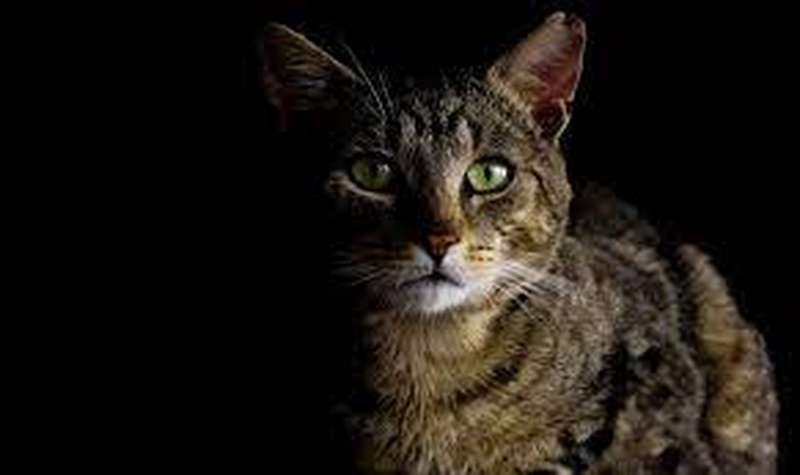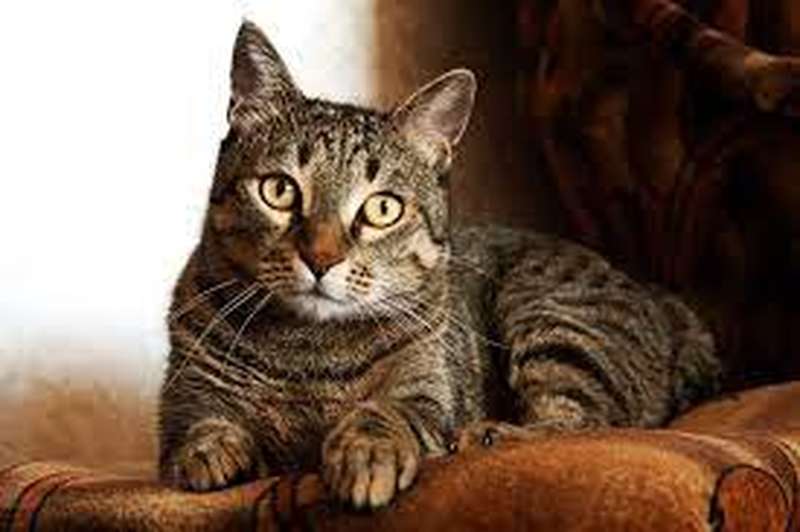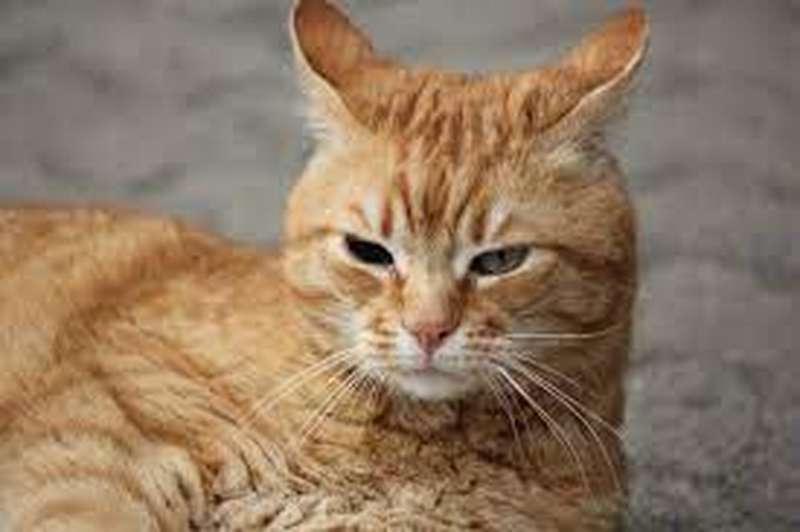The term “tabby cat” evokes a distinct image in many people’s minds: a small tiger-like feline featuring distinctive and untamed stripes. Tabbies are commonly mistaken for being a specific breed, but their distinctive markings are a coat pattern found in various breeds, displaying a remarkable range of variations. Tabbies come in various colors, such as brown, grey, orange, and black. They also have distinctive markings, including stripes, spots, whorls, and bands.

Tabby Cat: Breed Overview
PERSONALITY: Friendly, independent, outgoing, adventurous
WEIGHT: Up to 18 pounds
LENGTH: Up to 40 inches
COAT LENGTH: Short Hair or Long Hair
COAT COLORS: Brown, gray, orange, or black
COAT PATTERNS: Tabby
EYE COLOR: Green, gold, or blue
LIFESPAN: Up to 18 years
HYPOALLERGENIC: No
ORIGIN: Ancient Egypt
Tabby Cats: A Brief History
Some sources say that the tabby cat descended from an ancient Egyptian breed called the Mau, which was formed by the domestication of an African wildcat. This theory is supported by the fact that the tabby cat has a distinct tabby pattern on its coat.
The modern descendant of the Egyptian Mau is the cat breed that displays a tabby pattern. One of the most notable characteristics observed in Mau and other tabby cats is the subtle marking resembling the letter “M” on their foreheads.
The manger was visited by a tabby, according to a tradition from the Bible. A tiny tabby cat cuddled up next to the infant with comforting warmth and purrs when Mary urged the stable animals to encircle the manger and warm infant Jesus. Mary wrote her initial, “M,” on the cat’s forehead out of gratitude.

Islamic legends recount the profound affection that Mohammed had for cats. Once, when he had to leave to attend prayer, he chose to cut off a sleeve of his garment instead of disturbing his sleeping cat, Muezza, who was resting on the sleeve.
These stories suggest that Mohammed gave Tabbies the “M” marking as a symbol of his admiration. In the Islamic world, cats continue to be widely protected and respected. They are even allowed to enter mosques.
In the 17th and 18th centuries, the term “tabby” referred to a type of striped silk fabric in English. The term was initially employed in the 1690s to refer to cats with stripes.
The first cat show in the world took place at the Crystal Palace in London in 1871. At this event, a 21-pound “English tabby” made an appearance and was documented.
Features of Tabby Cats
The tabby cat’s ubiquity is not surprising, as the gene for the tabby pattern can be found in all domestic cats. You might notice hidden tabby markings if you observe a coal-black cat in the sun.
Tabby pets come in a wide range of sizes and temperaments due to the diverse breeds they encompass.
However, tabby enthusiasts generally agree that tabbies often exhibit friendly, curious, and outgoing personalities.
| Affection Level | High |
| Friendliness | High |
| Kid-Friendly | High |
| Pet-Friendly | High |
| Exercise Needs | Medium |
| Playfulness | Medium |
| Energy Level | Medium |
| Intelligence | Medium |
| Tendency to Vocalize | Medium |
| Amount of Shedding | Medium |
Temperament
The personality and aggression levels of cats can vary significantly from one cat to another and are influenced by multiple factors. In 2015, researchers from the University of California, Davis, conducted a study to investigate the correlation between coat color and behavior in cats.
The researchers conducted statistical analyses on a sample of 1,274 online surveys that were completed by individuals who own cats.

The owners were requested to assess the cats’ level of aggressiveness in three different scenarios: interactions with humans, handling, and veterinary situations. The study concluded that aggressive behaviors varied slightly among different coats, but overall, they were relatively minor.
Researchers observed that the greater variations in aggression appeared to be associated with the sex of the individuals rather than being influenced by any specific coat pattern or coloring.
Another study, which had similar findings, also found no evidence of a connection between a cat’s behavior and its coat pattern. However, it proposed that any observed differences were merely a result of people’s perceptions.
For example, individuals may perceive orange cats as “friendly” and white cats as “shy” and subsequently seek out confirmation of these preconceived notions.
Taking Care of a Tabby Cat
The care of a tabby cat will primarily depend on its breed rather than its coat pattern. For example, a Maine Coon tabby will need more frequent brushing and coat maintenance and may even require hairball medication compared to a Manx tabby. When it comes to exercise, an Ocicat requires more space to play compared to a Persian tabby.
Common Health Concerns
Although mixed-breed tabbies are typically healthy and strong, purebred cats often have specific health issues that necessitate personalized care.
Appearance
Tabby cats come in a variety of sizes and shapes, ranging from small and dainty to large and hefty. There is a significant amount of variation in their tabby patterns. There are four genetically distinct basic patterns, which are as follows:
Classic:
Typically, this pattern exhibits whorls that culminate in a distinctive “target” shape on the cat’s side. This pattern is often observed in many American Shorthair cats.
Mackerel:
This pattern is extremely common, to the point where some individuals believe it should be referred to as a “classic” designation.
Mackerel tabbies display distinct features such as striped rings encircling their tail and legs, a pattern resembling a “necklace” of stripes on the front of their chests, and bands of solid or broken stripes running along the sides of their bodies.
The cats will exhibit darker coloration in certain areas, forming two lines across their abdomens, commonly referred to as “vest buttons.”
Spotted:
The Ocicat and the American Bobtail are both excellent examples of spotted tabby patterns. However, it’s worth noting that some mixed-breed cats, known as moggies, can also exhibit this color pattern.
Agouti (Ticked)
The majority of tabby cats have agouti hairs incorporated into their pattern. Upon closer inspection, one can observe distinct bands of color running along the length of the cat’s fur.
Because of the variety of colors that they possess, cats with an all-ticked pattern have the appearance of shimmering when exposed to direct sunshine.
A fifth pattern is observed when patches of tabby markings are present on a calico or tortoiseshell cat. The terms used to refer to them are caliber and torbie, respectively.
Nutrients and Diet
Feeding tabbies of any breed with a portion of wholesome cat food, whether dried or canned, is generally an excellent choice. It is important to conduct research on your specific breed of cat to determine if it has any distinct dietary needs.
Where to Find a Tabby Cat for Sale or Adoption?
Tabby cats are quite common among the general cat population, so finding one is as easy as visiting your local shelter and adopting a kitten or adult cat.
If you are interested in buying a specific breed of cat with tabby markings, I recommend reaching out to breeders in your area. Contact them and inquire about the availability of tabbies in their litters.
There are several advantages to having a tabby cat.
- The user is generally friendly and outgoing.
- The color pattern is common, making it easy to find.
- The cat’s coloration is both beautiful and wild-looking.
There are several disadvantages associated with owning a tabby cat.
- Certain breeds of tabby cats may have more extensive care requirements.
- Health concerns can also differ among various breeds.
- The personality of purebred dogs can vary.
Tabby Cat Types
The tabby pattern is permitted for several cat breeds, according to the Cat Fanciers’ Association (CFA):
- Ethiopian (ticked)
- United States bobtail
- English curl
- The traditional haircut is American shorthair.
- U.S. wirehair
- (tabby points) Birman
- Shorthair colorpoints (tabby points referred to as “lynx points”)
- The original spotted tabby, the Egyptian Mau
- Persians with short hair are exotic.
- The lynx points of Java
- LaPerm (which derives from “barn cat”)
- Probably the most well-known pedigreed tabby cat is the Maine coon.
- Manx
- Forest cat from Norway
- Oriental Ocicat (with 112 tabby variations)
- Persian
- Ragdoll (lynx points)
- Rex (Cornish, Devon, and Selkirk)
- Scottish fold
- Another “natural” tabby cat breed is the Siberian.
- (Ticked) Singapura
- Somali (ticks long hair)
- 14 acceptable tabby patterns/colors for Turkish Angora
- Turkish van (six colors/patterns of tabby)
Conclusion
In general, tabby cats make excellent pets for individuals and families, including those with children and other pets. When you are looking for specific breeds, it is helpful to know if the breed you are interested in has any known personality quirks or less agreeable tendencies.